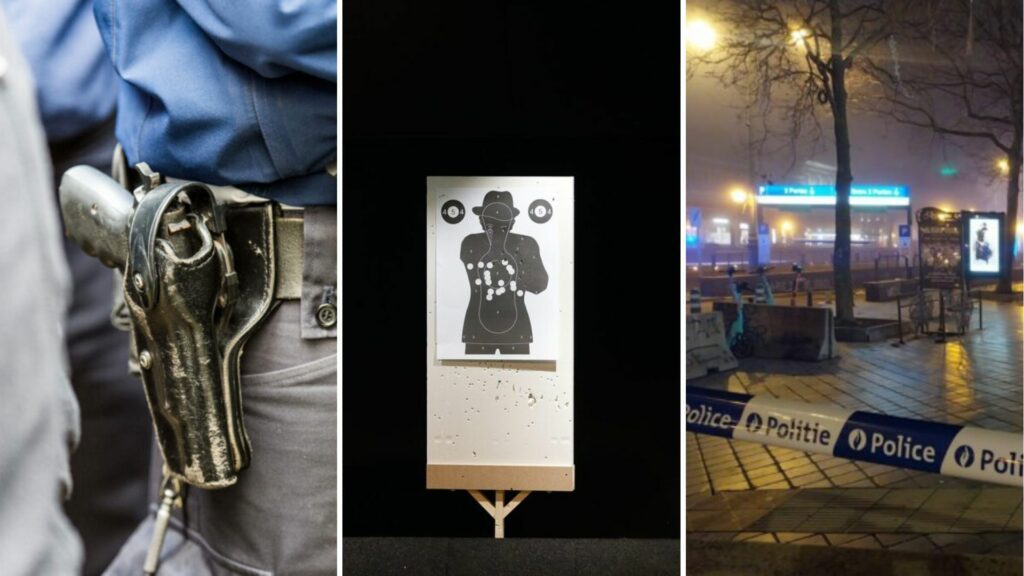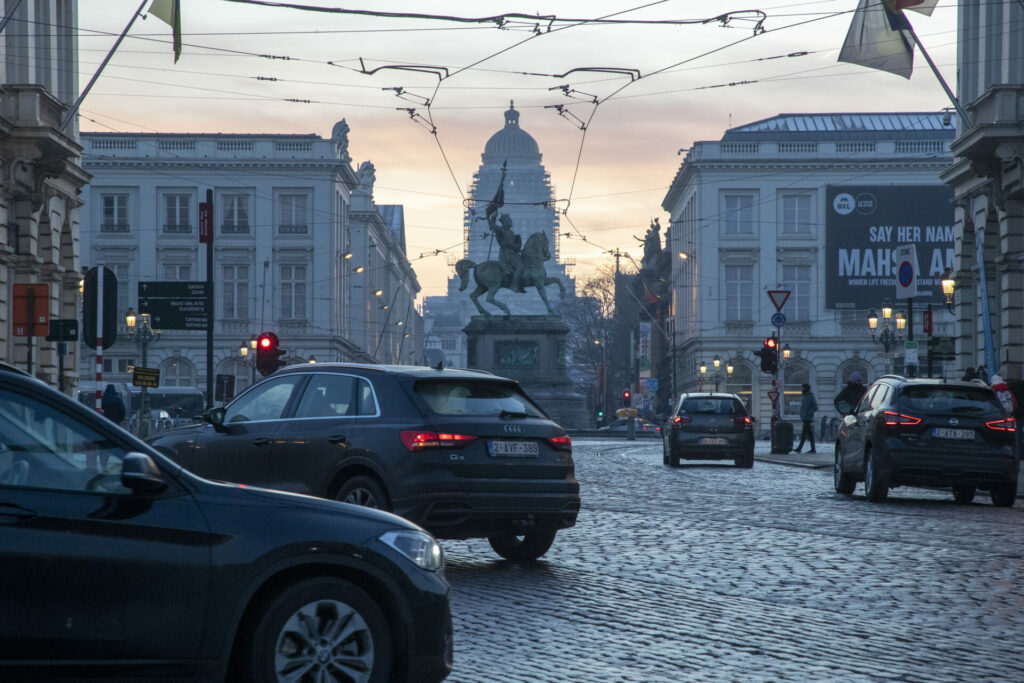Barely a day after a leading Belgian terrorism expert sounded the alarm on the risk of entering crowded areas during the festive period, Brussels last night witnessed another shooting in which four people were injured – one critically.
Though police were quick to rule out a terror incident, European centres have been braced against such acts of violence after a spate of attacks in recent months, including in Brussels on 16 October. On Tuesday, the EU Commissioner for Home Affairs Ylva Johanssen said that Europe faces a "huge risk of terrorist attacks" in the coming weeks, citing the ongoing tensions in Israel and Palestine that have led to "polarisation in our society".
Last night's shooting took place on one of the city's busiest shopping streets, Toison d'Or. It has subsequently been deemed a settling of scores between rival gangs – an issue that has become commonplace in Antwerp (now notorious for drug-related violence) and is now occurring with growing frequency in the capital.
The ominous warning by security specialists have so far proven disturbingly accurate, the message being that it's more a question of when rather than if. To make matters worse, Belgium has one of Europe's highest rates of violence with firearms, with the federal police reporting close to 6,000 offences of illicit firearm possession each year – figures that have held for over a decade.
Whilst the cartels competing for supremacy in the drug trade have been known to employ gruesome torture tactics out of sight and beyond protection from forces of law and order, a sense of impunity among traffickers has seen intimidation and assault carried out in public. A study published today by the Flemish Peace Institute highlights a growing number of instances in which firearms are being used, from gang wars to robbery.
With the uptick comes a higher chance that the public are collateral damage, if not targeted directly. Can we no longer assume safety in numbers?
Let @Orlando_tbt know.
Belgium in Brief is a free daily roundup of the top stories to get you through your coffee break conversations. To receive it straight to your inbox every day, sign up below:
1. Shooting in central Brussels: What do we know so far?
Four people were injured following a shooting on Wednesday evening on one of the busiest shopping streets in Brussels. So far, the identity of one victim has been confirmed, but no arrests have been made. Read more.
2. A public health victory: Low Emission Zone significantly improves Brussels air quality
Brussels' low-emission zones (LEZs) have helped achieve a reduction of up to 30% in nitrogen dioxide (NO₂) along the main roads since 2018, improving the air quality in a region where around 1,000 premature deaths per year are caused by pollution. Read more.
3. Extra night trains from Brussels to Vienna and Berlin from this weekend
Starting this weekend, the number of direct night trains between Brussels and Vienna will be increased and a second night train connection to Berlin will also be added to ÖBB's Nightjet offer, the company announced on Wednesday. Read more.
4. UNESCO recognises century-old Belgian irrigation technique as cultural heritage
A traditional Belgian irrigation technique has been recognised as an intangible cultural heritage of humanity by UNESCO, as it is a strong identity marker for practitioners. Read more.
5. Saint Nicolas arrives at Uccle school in a Porsche
Saint Nicolas arrived on Wednesday at Brussels school in a Porsche convertible, provoking the wrath of local opposition parties. Read more.
6. Queen Nikkolah comes to Brussels despite 'anti-woke' backlash
Undeterred by bitter anti-woke opposition, Sinterklaas’ black female counterpart Queen Nikkolah continues to visit Belgian children, making a pitstop in Anderlecht this Saturday. Read more.
7. Hidden Belgium: One of the oldest cafés in the world
It’s the oldest cafe in Bruges. One of the oldest in the world. Opened in 1515, Café Vlissingen has survived wars, revolutions, and hordes of British tourists. Read more.


